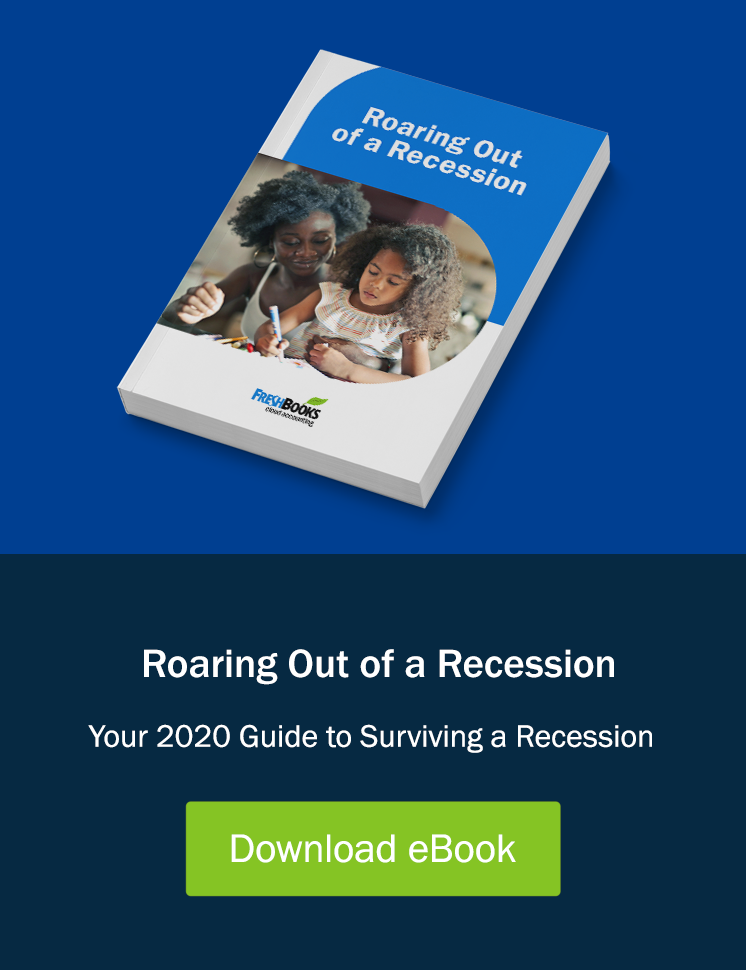The Ins and Outs of Freelance Writing
What Is a Freelance Writer and What Do They Do?
There is a huge variety of freelance writing jobs and opportunities. A freelance writer could be hired by a brand, an individual or an editorial outlet (like a magazine or newspaper). While the variety of freelance writing jobs are seemingly endless, some of the main categories of freelance writing opportunities include:
- Content marketing. Content marketing is a hugely popular marketing strategy where brands create content to connect with their audience—and they need writers to create that content. This includes content a brand can use to market their business, such as blog posts, lead magnets, or case studies.
- UX writing. User experience (UX) is incredibly important for digital products. UX writers create all the written content that helps guide the user experience within an app or digital product (think menu copy and error messaging).
- Copywriting. Copywriting is all about writing persuasive copy that inspires readers to take action. Freelance copywriters create things like landing pages, website copy, and sales letters.
- Editorial work. Writing articles for newspapers, magazines, trade journals, etc. would all be considered editorial work.
- Technical writing. Tech companies and products are always in need of how-to guides, instruction manuals and other highly technical copy—which is where technical writers come in.

What Do You Need to Become a Freelance Writer?
Unlike some other freelance careers, the barrier to entry for freelance writing is pretty low. You don’t need a specific degree or educational background. You don’t need any special equipment. All you need is yourself, your laptop, and a desire (and ability) to write.
- Tech-savvy. While you don’t have to be a tech whiz in order to land a freelance writer job, you do need to know your way around a computer. And of course, be able to navigate any software or tools your clients ask you to use during the writing process.
- Adaptable and diverse. If you’re able to work on a variety of different projects across a variety of different industries with a variety of different clients, you’re going to have more freelance writing opportunities.
- Tenacious. You’re likely to face a lot of rejection in your freelance writing career—but the most successful writers don’t let those noes stop them.
- Professional. It doesn’t matter what kind of writing skills you have—if you’re difficult to work with, it’s going to be hard to keep clients. The most successful writers are courteous, easy to work with, and bring a level of professionalism to their working process.
How Much Money Can You Make as a Freelance Writer?
Where to Find Freelance Writing Jobs: Twitter
Editors are always on Twitter putting out calls for pitches. It’s a great place to see what editors are looking for—and pitch relevant story ideas that are sure to get their attention.
If you know what publications you want to write for, do a quick search to find relevant editors on Twitter—and then follow them to make sure that when they put the call out for writers, you’re in the loop. You can also use hashtags like #callforpitches or #pitchparty to see what editors are looking for and use that to guide your pitch strategy.
Twitter is also an ideal place to network with other writers. Not only is connecting with other freelancers a great way to build out your network, but it’s also a great way to learn about writing opportunities from your fellow writers!
7 Ways You Can Land Freelance Jobs on LinkedIn
1. Use keywords in your profile
Start by fully filling out your profile and stuffing it with keywords about what you do. At one time, mine said “freelance writer, award-winning blogger, copywriter, and writing mentor,” but now it says “Freelance Book Ghostwriter & Traffic-Driving Blogger | Finance | Entrepreneurship” to better match my current freelance goals.
My profile also names my nearest major city, useful for people searching for a local writer — that’s how an airline magazine based in my town came to call me recently to write a $500 business-finance article. They’re not the only major company I’ve had call me cold off my LI profile, either.
So fill out your profile, people. Your profile converts people into buyers the best of any page on LI. People like to hang out in the groups (more on them later), but filling out your profile completely may be your most efficient use of time on LI.
2. Check “Who’s viewed my profile?”
Yes, if you’re only on the free level, sometimes it won’t show you much — some of the information will be hidden. A Premium membership is the way to go for a month or two, while you prospect heavily with this strategy.
If they smell like a prospect, I then send them a message: “Hi, were you looking for a freelance writer? I noticed you were looking at my profile. Let me know if there’s anything I can do to help!”
3. Track down your editor connections
Shmooze, catch up, find out what they’re doing now. Do they need a job? Send them leads. Do they have a job? Maybe they can use you again, or know another editor using freelancers and could refer you.
At one point when I was really needed a few new clients, I decided to reconnect with every editor I’d ever liked. It was fun! And one I hadn’t written for in a decade ended up referring me a great new global client that I did 800,000 of work for last year, and they’re still calling me.
4. Browse available job postings
If you’re going to look at online writing jobs, LI is one of my favorite places to do it, as an increasing number of their ads are exclusive to LI. Their ads cost money, and the companies tend to be high-quality.
I use one of my favorite ad-hunting tricks and look at LI’s full-time job ads. In my experience as a staffer, the appearance of a staff-writer job ad means a crisis situation–someone usually left months back.
My strategy? Apply to any publication or company of interest, and just let them know you’re a happy freelancer, not looking for a full-time job, but I’m so right for you, look at my experience…do you perhaps also work with freelancers?
I got a nice, 800-a-word client, an interesting national trade magazine, with this strategy. It’s great if you feel like you don’t want to bother people–because these people are warm leads. They’ve already been checking out your profile, so it’s a natural reach-out to ask if they need a writer.
5. Use InMail for prospecting
Message #1 (right after connecting): Thanks for connecting! I’d love to learn more about your business and how I can help you. Right now, I’m looking to add a couple of freelance-writing clients in your industry. If you know anyone who’s looking for a writer, I’d appreciate your referrals. Let me know your ideal client, so I can return the favor.”
Message #2 (send anytime): “I’ve got some ideas that might help your business. Sent them over in an email – please be on the lookout for it!”
That’s right, instead of outright pitching people on LinkedIn, I often ask them to refer me leads. Why? It’s less obnoxious and likely to get you reported. People love to refer people! Makes them feel helpful.
6. Pitch in connection invites
Here’s a strategy for the bold writer: Pitch your services directly in your connection invite. This saves a step from the approach of throwing out a ton of connection invites without saying why you want to connect… and then InMailing them (as in point 5) to pitch them afterwards.
To an editor: “ Loved the recent article on X in the X issue! Are you accepting pitches right now? Would love to send you an idea about Y. I also noticed we have X mutual connections, and thought
it would make sense to connect.”
To a marketing manager: “ I noticed your company is in X NICHE, which I write for. Looking through your site, I thought you may benefit from X and X TYPES OF CONTENT. Would love to connect here to chat about how I can help bring that content to life.”
7. Create a bait piece for your ‘Featured’ section
The reality: Almost no freelance writers seem to have turned this feature on! And the few that do have the section up don’t seem to know what to feature. I’ve seen a lot of random stuff in writers’ Featured area–decade-old clips, certificates for completed coursework (heads-up: clients don’t care), and other miscellany.
Tips for finding freelance writing jobs online

Obviously I couldn’t cover every last place to find freelance writing gigs in this post, but even this list of the 15 best freelance writing sites give you the sense that there are a lot of options out there.
1. Pitch and apply every day
This is especially important when you’re getting started, but I really recommend even the most experienced freelancers keep a steady schedule of submitting pitches or applications for new work.
Especially when you’re just getting starting, you’re just going to have to play the numbers game to some extent. Even the best writers in the world won’t have a perfect success rate of turning applications to jobs into work.
2. Niches can be great, but you don’t need one to start
3. “Experience” isn’t necessarily a number of years
If you’re a new freelance writer with no experience at all, you’ll be particularly keen to notice many jobs will include some sort of “experience” criteria, often times in the form of “x years of experience required.”
There are a few corporate HR departments that will have strict hiring requirements where four years of experience needed literally means you better have four years or you’re not at all qualified.
If you know how to write well and can demonstrate that with portfolio pieces and, even better portfolio pieces with testimonials from past clients, you should absolutely apply for the job if you want it.
4. Freelance sites that let you create a profile are worth joining
In the case of FlexJobs, in addition to giving you access to more exclusive freelance writing jobs, you’ll also be able to build a reputation within their platform so that potential clients can find you and reach out to you specifically and directly.
Other sites like Contena do the same, and can also serve as an online home for your portfolio so you can easily share your past work with clients you find on other writer jobs sites.
5. Don’t forget about good ol’ fashioned networking
These freelance writing websites, job boards, and platforms are a great place to start (and continue) to find online writing jobs – but it’s important to also build up other channels throughout your journey!
Sometimes for finding online freelance jobs, sometimes to make connections with fellow freelancers who you can collaborate with, and sometimes to just share your successes and frustrations along the way.
Freelance writing websites FAQ

What is freelance writing?
As a freelancer, you’re a self-employed independent business owner, responsible for finding clients who need help, selling them on your services, completing the work, and ensuring you and your client end the project satisfied.
What types of freelance writing jobs are there?
- Blog writing: creating content for business blogs
- Copywriting: creating sales pages, landing pages, product pages, or emails designed to sell products and services
- Content writing: creating content for white papers and ebooks; overlaps with blog writing and social media writing
- SEO writing: creating blog posts and website copy focused on ranking in search engines like Google
- Web content: writing for website pages; overlaps with blog writing, copywriting, and SEO writing
- Social media writing: creating written content to post on Facebook, Instagram, Twitter, etc.
- Video script writing: creating scripts for videos
- Email writing: creating email newsletters and sales emails
What are the highest paying freelance writing jobs?
Which sites have the best freelance writing jobs for beginners?
The most important thing for beginners looking to land freelance writing jobs is to know that it’s a numbers game. You’ll have to apply to a lot of jobs before you land one, and after that it’s still going to take a lot of work.
As a reference point, you’re absolutely crushing it if you get a response to 3 out of every 10 applications you send. And if 1 of those 10 turns into a freelance writing gig, that’s a win.
-
- – the additional support and resources you get on top of their online writing job board (the coaching, courses, rates tool, etc) are super valuable to help you get your freelancing legs under you. – you won’t be able to earn a lot in the grand scheme of things through this site, but it can be a good place to earn your first few freelance writing dollars while you start to build a portfolio you can use to get better/higher paying work. – I have a few friends who have had a lot of success with this platform, even though the fees aren’t great. They’re the biggest freelancing marketplace which means there’s always plenty of work available, and the fact that you can get testimonials to build up your credibility and eventually have clients find and reach out to you is super valuable.
- FlexJobs – This is a fantastic, vetted alternative to Upwork. And the subscription will cost you less in the long-run than the cost of applying for projects. These jobs are high-quality and flexible.
How do I start freelance writing if I have no experience?
Source:
https://www.freshbooks.com/blog/where-to-find-freelance-writing-jobs
https://makealivingwriting.com/linkedin-freelance-writing-jobs/
https://freelancing.school/best-freelance-writing-sites/

